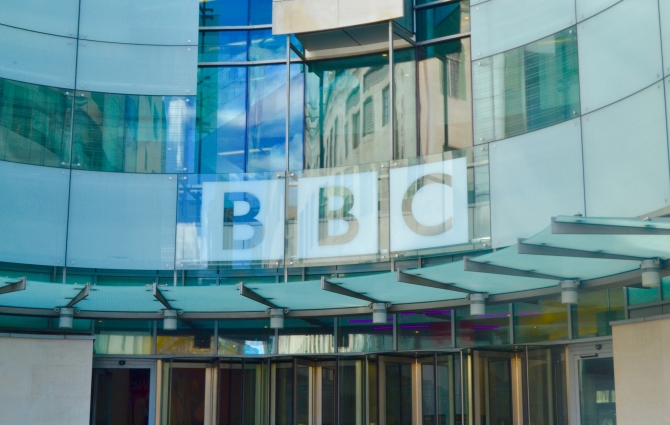 A proposal in the UK Parliament to decriminalise non-payment has sparked debate about the BBC’s licence fee, but LSE’s Bart Cammaerts argues that this debate should be widened to consider other ways of funding the BBC and makes a case for funding through general taxation.
A proposal in the UK Parliament to decriminalise non-payment has sparked debate about the BBC’s licence fee, but LSE’s Bart Cammaerts argues that this debate should be widened to consider other ways of funding the BBC and makes a case for funding through general taxation.
The current debate about the licence fee should be about much more than whether not paying it constitutes a criminal offence or not. The BBC is quite rightly a treasured institution in this country and a model that many other countries aspire to when it comes to a quality public service broadcaster. It evidently costs money to produce quality television and radio, lots of it – the BBC’s total budget as reported in their 2012/2013 annual report is more than £5 billion of which £3.6 Billion is funded through the licence fee[1]. However, when it comes to financing public service broadcasters, there exist a wide variety of models.
In most countries a somewhat hybrid system exists whereby at least part of the budget for public service broadcasting comes from various commercial activities or advertising, topping up state-funded resources (about 30% of the revenue of the BBC comes from developing commercial activities). Many, mostly European countries, such as the UK or Germany, collect a licence fee to partially fund public service broadcasting. Other countries, such as Belgium, Canada or Australia, fund public service broadcasting through general taxation.
I believe funding public service broadcasting through general taxation is more preferable than making everyone buy a licence to watch or listen. Why? Mainly because it is much fairer. When using general taxation to fund public service broadcasting the richer part of the population contributes proportionally more than the poorer segment of the population, whereas with a licence fee rich and poor pay exactly the same. Having to pay a licence fee is, however, more burdensome as a cost for poor people than it is for the rich or even middle classes.
There are, of course, solid justifications in favour of a licence fee (see BBC’s Andrew Scadding’s response to MPs). It creates, as is often argued, a direct bond between the citizens – those who pay and the public service broadcaster – the recipient. It is transparent and relatively speaking unambiguous, which is important. The public service broadcasters’ shareholders, so to speak, are their audiences, not the state or the government, which strengthens its independence. The introduction of funding through general taxation, it is often argued, would break this strong bond and undermine the sacred independence of the public service broadcaster who would be at the mercy of political forces, which at times might be stacked against the very idea of public service broadcasting.
However, the case of North-Belgian public service broadcaster (VRT), which like the BBC has very high audience rates and a high degree of legitimacy has continued to receive sufficient funds after the switch from a licence fee to funding from general taxation. There are, of course, fierce debates between government, parliament and the public service broadcaster in terms of budget and remit.
This is, I would argue, not much different than is the case in countries where a licence fee is levied. The hefty negotiations taking place in the UK between political actors and the public service broadcaster leadership in view of signing a new royal charter or when amendments to the BBC Charter are made, attest to this. The only difference is that the budget which is agreed upon does not come from a licence fee but from the general taxation pot, which could justifiably be increased by the same amount as the licence fee raised, but proportionally distributed across different income-levels. In any case, part of the money the BBC receives already comes from general taxation (the Department of Work and Pensions pays about £600 million to fund the licences for those above 75 years old, and which the government is threatening to take away).
As such, I believe that the dangers of moving from a system of licence fee to a system of paying for public service broadcasting (just like all other public services) through general taxation are overblown and that such a shift should be part of the emerging debate regarding the financing of public service broadcasting. It would be a much fairer system and also evasion proof (evasion is estimated to be over £180 million a year). It would furthermore represent a saving of about £125 million on a yearly basis, which is reported to be the cost associated with collecting the licence fee. In other words, by switching to a funding system based on general taxation rather than a licence fee over £300 million could be saved while at the same time getting rid of a flat-tax which hits the poor disproportionally hard.
This article gives the views of the author, and does not represent the position of the LSE Media Policy Project blog, nor of the London School of Economics. ![]()






Hi Bart,
You may remember me – New media, Information and Society class of 2007.
I wrote my undergraduate dissertation on this topic, and the concern about funding it from general taxation comes from the issue that it can affect which programmes are not made (not which ones are made, per se, but those which are quietly shelved). Broadcasters funded out of general taxation area more likely to be reluctant to be critical of government in their programming. As one of the functions of a broadcaster is to present all views and to be unbiased politically, funding from taxation could have the effect of stifling open debate, more so than those funded from a license fee.
I agree it’s not an easy discussion, and one which should be had openly.
Thanks for a thoughtful piece!
Holly
Completely agree – thank you for writing this. As someone who has no objection to the BBC being publicly funded but detests the outmoded and regressive Licence Fee it feels like being in the middle of an argument where both pro BBC and pro commercialisation say you are wrong. Funding through taxation would immediately eliminate evasion, would save money on enforcement and stop thousands being criminalised. Either the BBC is such a vital service that, just like other vital services it gets funded through progressive taxation or we admit it isn’t vital and look at other funding options. I’d prefer the former option. Would taxation funding reduce impartiality? Until a few years ago the World Service was funded by the government and I don’t recall the WS as being seen as overt propaganda. Charter renewal procedures keeps the BBC on a government leash to some extent anyway. The Licence Fee comes from a time when many people did not own televisions. Now nearly everyone does. Why are we still clinging to it – it’s a regressive tax in all but name, why not make it a progressive one?
I’m not an accountancy wiz but surely paying something like £1.55 billion (Capita’s fee) to try to collect £180 million from avoidance doesn’t make economic sense. The BBC is no longer the Bastion of “Britishness” it once was and there’s a myriad of other information & entertainment options for citizens/subjects. Collecting the net revenue from the current licensing via taxation is the logical way forwards, benefiting us, the Taxpayers by an overall saving in the long-run, The other bonuses would be less pressure on the Courts and Prison Service. The problem is of course the remaining length of Contracts with the Collection Agency and other vested interests ie; Qui Bono – who actually benefits from the existing system as that’s where the resistance lies.